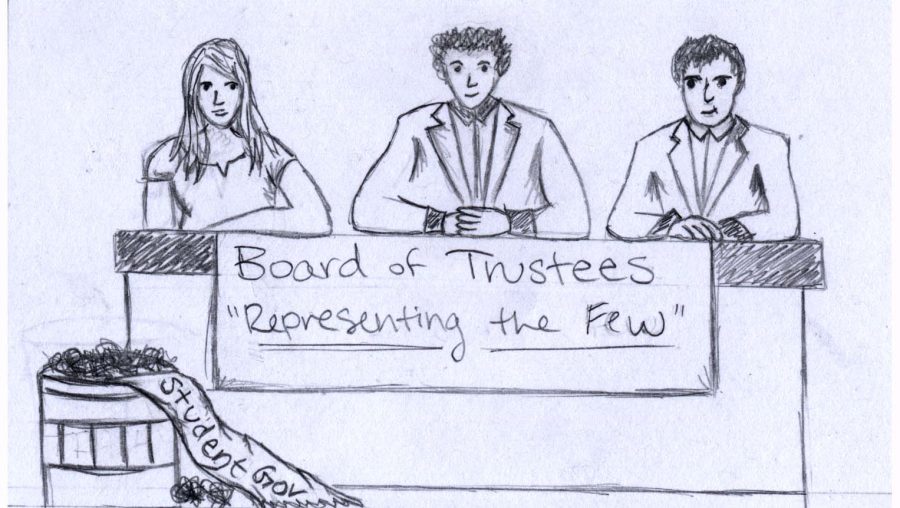With tuition rates and student loan interest rates as high as they are, students deserve to have a say in the policies and procedures of the university they attend.
Unfortunately, UW-Milwaukee has recently taken steps that reduce its student body’s collective voice.
After allegedly having issues such as ballot fraud, conflicts of interest and the use of old bylaws to prevent certain students from taking office, UW-M chancellor Michael Lovell dissolved the student government and replaced it with a Board of Trustees, appointed by faculty.
After a judge dismissed a lawsuit brought against UW-M by former members of the student government, this Board of Trustees continues to have power over decisions made on UW-M’s campus.
This arrangement to dissolve the student government is detrimental to UW-M’s student body, borderline illegal, and a bad example for students. It should be changed immediately.
The grounds for the lawsuit was an alleged violation of Wisconsin’s shared governance statute 36.09(5), which states “the students of each institution or campus subject to the responsibilities and powers of the board, the president, the chancellor, and the faculty shall be active participants in the immediate governance of and policy development for such institutions.”
Clearly, with a judge’s dismissal of the case, UW-M was found to not be in violation of this statute, but it is walking a fine line.
Having students apply for appointment and having faculty members appoint certain students is obviously not the best representation of the entire student body, which statute 36.09(5) calls for.
The statute goes on to state “the students of each institution or campus shall have the right to organize themselves in a manner they determine and to select their representatives to participate in institutional governance.”
According to the complaint, the chancellor issued an emergency order to dissolve the student government, and the University Student Court took action to create the Board of Trustees, which would appear to be a direct violation of this part of the statute.
As well as tiptoeing the boundary of legality, disbanding the student government sets a bad example for students.
College is supposed to be a time and place for students to learn, and this situation was a missed opportunity on the part of the UW-M administration to teach a group of students clearly interested in government about how to handle corruption in governmental procedures.
Our campus recently had a situation somewhat similar to UW-M’s. Upon counting signatures to become an official slate in the 2014-15 elections, Nathan Perry and Lucas Tomachek were missing one signature overall, due to duplicate signatures.
Instead of overreacting and having faculty involved, Whitewater Student Government put it to a vote and allowed Perry/Tomachek to become an official slate. They went on to win the election.
This was the ideal way to handle the situation and allow the students to work it out on their own and learn how to face these issues.
In addition to representing the entirety of the student body more efficiently and teaching students how government affairs works, having a student government allows for more services for students.
For example, WSG offers free legal and tax advice, gives renter’s resources to students and provides listings of available off-campus housing. In addition, WSG sponsors events such as the upcoming WSG EcoFair on April 23, which provides students with the chance to learn about sustainability, as well as opportunities for internships and employment.
The benefits of having a student government outweighs the legal questions surrounding the nature of having a Board of Trustees led by faculty-appointed students. The best way for UW-M to be fair to its students is to bring back its student government.


